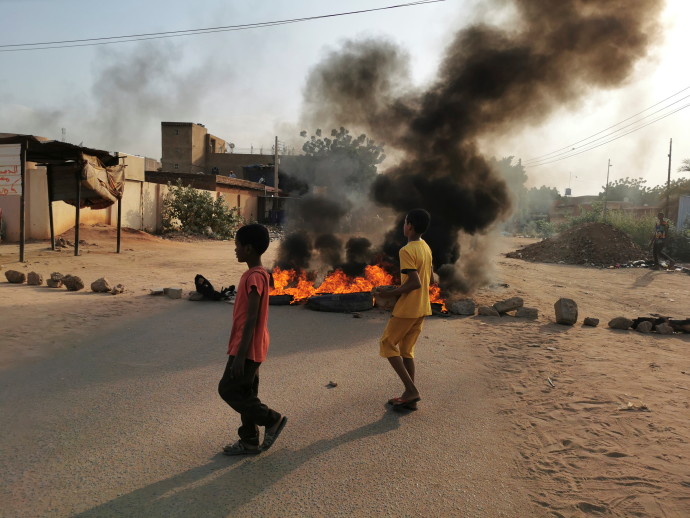There is very little evidence of the existence of an actual, unified entity called the "Wagner Group." Reports claim the elusive group first emerged in Ukraine in 2014 during the Crimean conflict. After that, it is believed the mercenary group fought in Syria as Russia sought to help President Bashar Assad's regime.
Where does the Wagner Group operate?
For years, Ukraine has accused the private military organization, which appears to have close ties to the Kremlin, of fighting in Luhansk and Donetsk, the disputed parts of eastern Ukraine.
The mercenaries, who have also reportedly fought in both northern and sub-Saharan Africa, have been accused of torture, rape and extrajudicial killings.
The group has also been sighted in other conflicted areas, reportedly arriving in Mali after a 2020 coup d’etat isolated the West African country from the world's democratic countries.
As Russia invades Ukraine, the Kremlin is pushing to enhance its influence worldwide, and private military groups like Wagner offer an undeniably effective way to advance those goals.

Since 2016, the Russian mercenary footprint has grown from four nations to a total of 28, according to the Center for Strategic and International Studies in Washington. Eighteen of those are located in Africa.
“From a legal perspective, Wagner doesn’t exist,” says Sorcha MacLeod, who heads the UN’s working group on the use of mercenaries. Instead of a single entity, Wagner is a network of companies and groups.
Who created the group of mercenaries?
According to a European Union regulation last December which worked to implement sanctions against the group and its members, it was founded by Dmitry Utkin, a former Russian soldier, who is adorned with Nazi tattoos.
The group was reportedly named after Hitler’s favorite composer, Richard Wagner. In December 2016, Utkin was seen together with Russian President Vladimir Putin at an event sponsored by the Kremlin, hinting at the group’s powerful ties within Russia.
Wagner is thought to be funded by Yevgeny Prigozhin, a businessman who is also alleged to run the Internet Research Agency, Russia’s “troll farm.”
According to the US Treasury, Prigozhin "is the Russian financier of the Internet Research Agency (IRA), which he utilizes to operate global influence operations.
"In early 2021, Prigozhin continued to coordinate messages in an attempt to spread disinformation about the United States government. His vast global network spreads false narratives online."
According to the Treasury, Prigozhin's influence network is reportedly supporting the Russian government's information warfare operations within Ukraine and Russia.
How much do we really know?
What little information is available about the Wagner network has been painstakingly pieced together by investigative journalists, researchers, UN and government reports, and through corporate documents obtained by the Dossier Center, a London-based investigative outfit funded by the exiled Russian oligarch Mikhail Khodorkovsky.
Russian reporters, who have provided some of the most detailed information about the group, have done so at great personal risk.
In 2018, a team of Russian journalists who went to to the Central African Republic to report Wagner activities there were killed in what is suspected to have been a planned elimination.
Reporter Maxim Borodin, who reported on the deaths of Wagner fighters in Syria in 2018, died that same year after falling from the balcony of his apartment. Others have been threatened and harassed.
